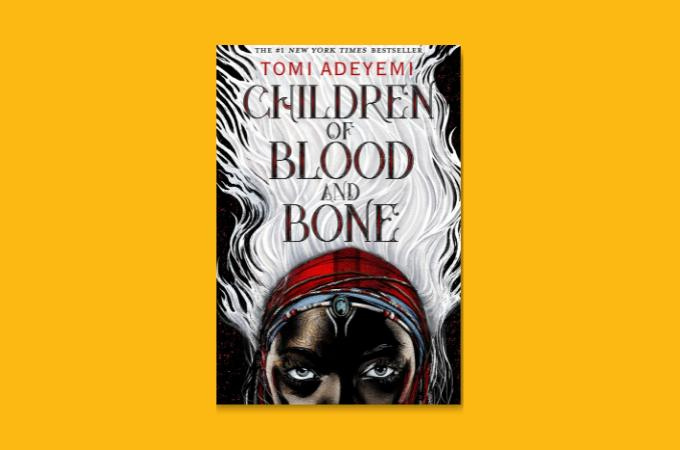
I spent 2020 reading and analyzing books and texts created by black creators. When talking and thinking about texts, I find it most useful to try and escape line-by-line analysis, and book-by-book review. Instead, I categorize books into classes. I define a class of book by style and time period. I consider how they interact with larger trends in culture.
As I am reviewing these authors from diverse genres, backgrounds, and world views, two themes reoccur—Memory and Magic. Authors are beginning to more intentionally connect the dots between the African continent and its diasporas. They are inviting each other to meet each other, to share, and rebuild.
Achebe vs. Adichie and Choosing to Live
If there was ever a seamless passing of the proverbial baton, it is between Chimamanda Ngozie Adichie and Chinua Achebe. Both are Igbo writers, clear thinkers, and honest brokers of truth. While Achebe and his class were concerned with what life would be like for newly independent Nigerians and emancipated Black people, Adichie and her class choose simply to live.
Adichie’s class is less interested in explaining or translating African Culture and belief systems to international audiences. They choose simply to exist. Existing comes with its skirmishes, both with one’s neighbours and foreigners alike. Stories in Americanah, and Coates’ Between the World and Me, read more like an affirmation, and less like an explanation of self. Americanah will be for my generation what Things Fall Apart was for Adichies.
Both Ifemeleu and Okonkwo are shamed, forced to leave their communities; both return, but Okonkwo kills himself, and Ifemeleu chooses to live, despite living in contradiction to her native land. Adichie, Akeke, Coates, Evaristo, and their class are telling stories where they are unbent, unbroken, and see their characters live at the end.
Adeyemi, Coates, James, Jemisin, Okorafor—African Stories or Stories about Africa
I don’t know if these writers will ever consider themselves in a similar breath aside from the fact they are black and writers. Their books raise important questions about style, mastery, and genre. Most notably, Black Leopard, Red Wolf, written by Marlon James, reads like an oral translation of a story from a dishonest broker. You don’t know what part of the story is real, and which is a lie. There’s also something “uniquely African” about this Jamaican writer’s novel. It is not just in the deeply expansive world he builds, but also in his mastery of this oral form.
In comparison, the work of Adeyemi’s Children of Blood and Bone feels fun and adventurous. Although her work borrows from Yoruba and West African Mythology, it feels African in world-building but does not feel African in technique or point of view.
Both books are profoundly brilliant and have won their fair share of accolades, critical review, and acclaim.
The takeaway for me here is that both books are equally important if not equally African. There are no central criteria for what constitutes Africanness. Africa, like all metageographical structures, is as much about social ideas as physical entities. If anything, these authors offer us a more expansive view of what it means to be African. Writers from the Caribbean and diasporas are embracing and reconstituting what it means to be African, if it means anything at all.
Please No More Prefixes and Suffixes
Writers are free to write what they like and should be called what they are asked to be called. But the names we give ourselves and our genres are a reflection of how we imagine ourselves in the world. Okorafor’s introduction of Africanfuturism seems to be more complete to what writers like Adeyemi are trying to achieve, but in some ways, it still feels insufficient a category of naming. It attempts to name one genre and does so astutely. What we should call the other genres is still important to explore. Everything we do does not have to be prefixed with Afro/Afri and suffixed with ism/ist. If you are a fantasy, juju writer, or a sci-fi writer, or a juju-sci-fi writer, be that.
Okorafor writes that “Africanjujuism is a subcategory of fantasy that respectfully acknowledges the seamless blend of true existing African spiritualties and cosmologies with the imaginative.” The magic Onyesonwu draws from in Who Fears Death is represented as true and existing, i.e non-fiction. The Orisha in the Children of Blood and Bone feels more fantastical but draws from elements of Yoruba mythology. Oregeny in Broken Earth is purely fictional. The diversity of style represents a fullness of black thought, African imagination, and inspirations. This literary diversity does not exist in African literary traditions only, but it feels like a lot of the magic we create is always pre-fixed with Afro, as if we are still explaining ourselves. Even Afrobubble gum, a genre centred on fun and escapism, still carries this dead prefix.
Afro for me feels like a response to something, a need to enter an already existing narrative, instead of the full embodiment and articulation of self. I have just never met, or heard of a juju writer that is not African. It should be more appropriate to write about Euro/Anglo jujusim than it is to speak of Afro jujuism. Juju is/has become an African literary genre. Juju may be separate from fantasy because well, it is not fantasy. But Juju is West African in its origins, understandings, and transformation. Why not just call Juju literature, well Juju literature?
The goal is not to argue and dispute about names of genres. We have come so far. The goal is to reflect on this progress, and appreciate our fullness and diversity as a literary tradition, and prepare for the emergence of new genres, new critiques, and new voices. The goal is to account for and record these critical interventions in culture, and to welcome new possibilities in seeing and naming ourselves.
Black is King vs. Black Panther—Who is in Control of Our Stories?
What both these movies tell us is for anglophone black movies, America is still the centre of Global cultural production. More so, it says that Disney is still the centre of the cultural output for global Black-centred storytelling. The domestic and international box office success and cultural impact of Black Panther are undeniable, and we expect to see another movie eventually. Beyoncé’s visual album Black Is King made its debut on Disney+ and highlights another story. Yahoo News reported that its users dedicated 22% of their time watching Hamilton, compared to only 2.2% for Black Is King. Furthermore, more viewers favoured watching Frozen 2 and The Muppets over Black Is King, attracting less than 4% of the total Disney+ users.
Whether you liked Black Is King or not is beside the point; it is still one of the most culturally relevant black-centred movies since Black Panther. It also means that Disney is betting on black culture to bring in big dollars for them. And like most American things, DreamWorks will likely introduce their own “diverse” range of stories, and expect more Sony Digital, Oscar-winning spinoffs. Not to mention Netflix 9ja is betting big on Nigerian storytelling and is further entering into the South African movie market.
Ultimately this means that black culture is not controlled by black people. Fresh new storytellers, writers, and directors are emerging, but capital and distribution are still controlled by American companies. Despite the success of Black Panther, we have to wait another two years for another one, as we are slotted into schedules of producers looking to diversify their product offerings. And with the shaky performance of Black Is King, are American investors beginning to second guess investments in African film and storytelling? High budgets and too-big-to-fail corporate cultures do not take the necessary risks to explore wider black and African centred themes and develop local and international audiences.
We are not Building from Nothing.
Global black movie culture is still African American culture. Global movie culture is still American culture—although China and India are beginning to command more and more of box office sales each year. The closest second is the Nigerian home-video culture/cinema industry—Nollywood. Despite Nigeria’s independent movie industry, and vast storytelling traditions, Nollywood remains fun, colourful, and emotionally stunted. It has failed to centre the voices of those at society’s fringes, and tell deep and rich stories driven by strong narrative, emotion, and stirring character development.
Being dubbed a Netflix original or nominated for an Oscar is still perceived to be the crown jewel of many African producers and distributors, reaffirming America as the centre of Black/ African Anglophone cultural production. We are seeing the rise of Black-owned and African production companies like HART Beat Production, Outlier Society Productions, Chadwick Boseman’s Xception Content, Tyler Perry Studios, distributors like the OWN Network, and Nigeria’s Ebony Live. Together they are disrupting the cultural hegemony of legacy production companies.
We are also seeing said legacy companies take an interest in Black and African-centred stories. Nnedi Okorafor’s Who Fears Death has been optioned by HBO, Lupita Nyongo was set to produce Americanah and Born a Crime, and Nigerian production companies like Genevieve Nnaji’s The Entertainment Network are slated to produce a new class of Nigerian movies. Octavia Butler’s Wild Seed is currently being adapted for the screen by Nnedi Okorafor for Amazon Prime, and Okorafor’s Binti is currently undergoing the adaptation process over at Hulu (I’m so excited to see Binti on the screen), but all the distribution houses are American.
Until the source of quality African-centred movies begin to decentralize, we will be told to wait our turn in Disney’s rosters, and African American-centred stories will continue to shape the global black consciousness. I think what I am trying to say is, all our production companies from the continent and all diasporas who have an interest in black and African culture need to have a meeting, leverage economies of scale, tell better and more diverse stories and build not just production companies, but finance, host, and distribute movies for global audiences. They also need to work with emerging talent and support independent film creation and distribution.
We don’t always need a Black Panther; we need rich human stories that capture the fullness and richness of our histories, traditions, and spirit.
You Will Meet Yourself Back Where You Began, but Stronger
In all, I am optimistic because this next phase of storytelling does not belong to history, chance, or governments. It belongs to us. It is the people who drive culture and create meaning. We are animated by an ancestral force and a historical logic that brings us to each other. We are connecting through school clubs, growing up together, returning home, and spending time in each other’s homes. Africans and blacks from around the world are building together, and this is being reflected through our stories. This connection feels timely, necessary, and deeply urgent. Our writers and creators are curating the blueprint that will lead us back to ourselves. They are writing with juju, building with what we have, and writing stories where we live at the end.
Photo by Clever Visuals on Unsplash



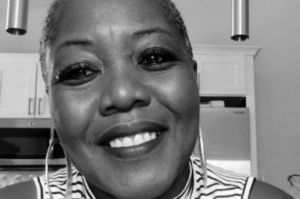
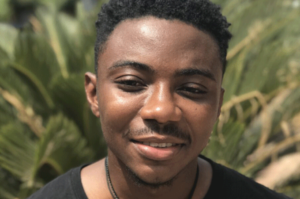
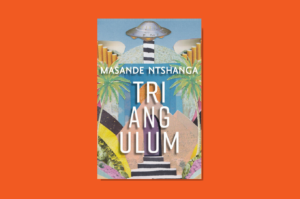
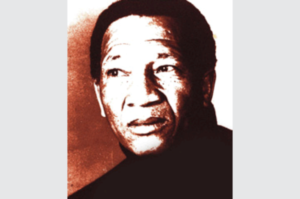
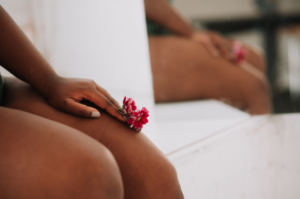
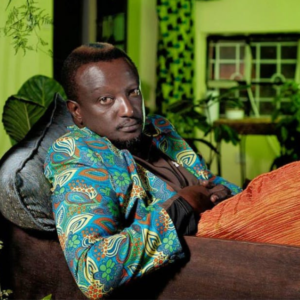

COMMENTS -
Reader Interactions